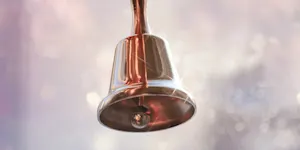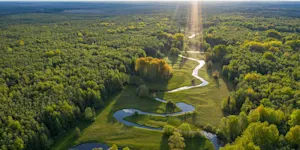What Makes This Word Tick
Hawthorn brings to mind those charming, flower-laden shrubs that seem to belong in a Thomas Kinkade painting. It conjures images of tangled branches dotted with white, pink, or red blossoms. Interestingly, despite their beauty, hawthorns have a reputation for their super-sharp thorns. Talk about being a "thorn in the side" in the most literal sense!
If Hawthorn Were a Person…
Imagine a quintessential English gardener—meticulous, slightly prickly at first, but deeply rooted in tradition. Always ready with a story or two about folklore and old wives' tales, this person has an undeniable charm that grows on you the more you get to know them.
How This Word Has Changed Over Time
The word "hawthorn" has remained relatively unchanged for centuries, maintaining its Old English roots of "hagathorn." Initially, it just described the hedge-like nature of this shrubby tree, but through time, it has come to symbolize various lofty ideas, like love and protection, in different cultures.
Old Sayings and Proverbs That Use Hawthorn
"By hook or by crook" might not include "hawthorn," but it's based on using a shepherd's crook (!) or a billhook to gather grazed hawthorn branches. Hedges have been practical fences and figurative hurdles, embodying barriers one had to overcome.
Surprising Facts About Hawthorn
Did you know that hawthorn berries are often used in herbal medicine to support heart health? They're also an ingredient in some gourmet jellies and flavored brandies. It might surprise you further to learn that hawthorn wood is particularly prized for its hardness and has been used to make tool handles.
Out and About With This Word
Next time you're on a countryside hike, keep an eye out for those distinctive, thorny branches. Hawthorns are star performers in hedgerows, serving as natural fences for wildlife. They've also been the centerpieces of many a May Day celebration, with their boughs and blooms integral to spring festivities.
Pop Culture Moments Where Hawthorn Was Used
Though less mainstream than some other plants, hawthorn has its moments in the spotlight. It periodically pops up in literature and films that explore English rural life or delve into apothecary practices. The BBC drama or period pieces often feature hawthorn hedges lining quaint country roads.
The Word in Literature
Hawthorn doesn’t headline many novels but rather serves as a backdrop or a metaphor in poetry and prose. Think of it as that loyal supporting character that holds the scene together. This tree often finds itself in narratives requiring elements of time, history, or natural beauty.
Moments in History with Hawthorn
In the story of England's great political shifts, hawthorn hedges were there—standing vigil as borders, witnessing shifts between old and new lands. Maybe they didn't play a starring role, but those nodding branches were present all the same, probably minding their own business.
This Word Around the World
In Gaelic folklore, hawthorn trees are sacred, considered the meeting place of fairies. In France, they are a symbol of hope and fertility. Meanwhile, their appearances across continents illustrate their versatility, from North American gardens to European forests.
Where Does It Come From?
The name "hawthorn" traces back to Old English and Proto-Germanic origins, with "haw" meaning hedge and "thorn," well, just as you'd expect—a prickly protrusion. This etymology grounds it firmly in its role as a practical hedgerow plant.
How People Misuse This Word
Folks often confuse hawthorn with every thorny shrub, but not every pointy plant is a hawthorn! Another common mix-up is treating "hawthorn" as a singular plant when it represents a whole genus, Crataegus, with many species.
Words It’s Often Confused With
Honeysuckle: Also a flowering shrub but climbing and twining, not thorny.
Juniper: A thorny plant, yet it's a conifer with berries much different from hawthorn's.
Rose: Both have thorns, but roses lack the shrub-like quality and are not typically part of hedge landscapes.
Additional Synonyms and Antonyms
Synonyms might include "May tree" and "thornapple," capturing different regional names. Antonyms could be "thornless" or "smooth," emphasizing features hawthorns decidedly do not share.
Want to Try It Out in a Sentence?
"The old hawthorn hedge lining the garden whispered tales of fairies and springtime romance as the petals fluttered down like confetti on a wedding aisle."
















